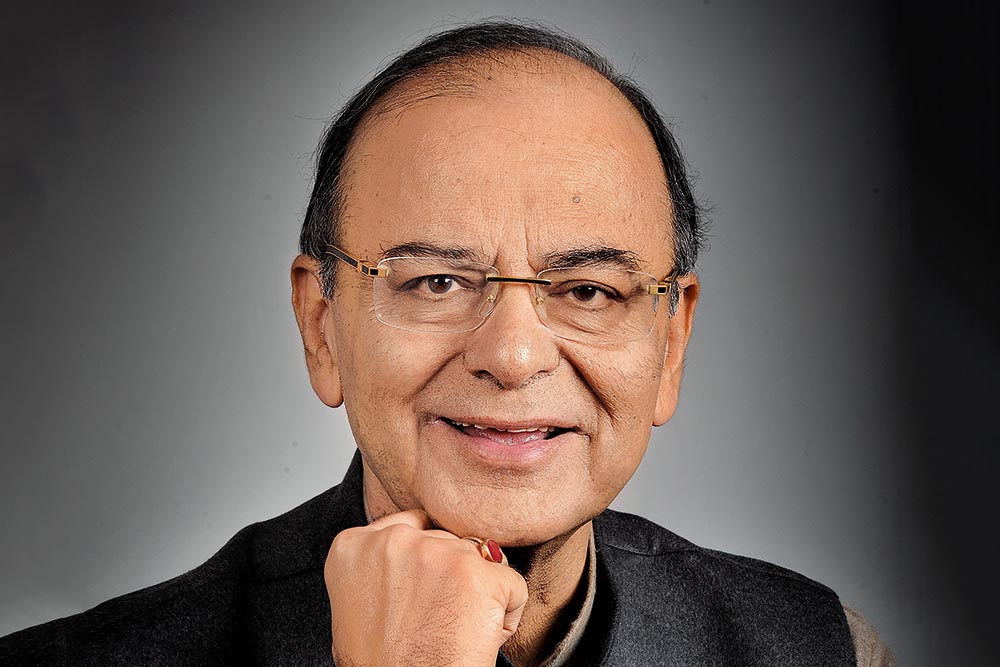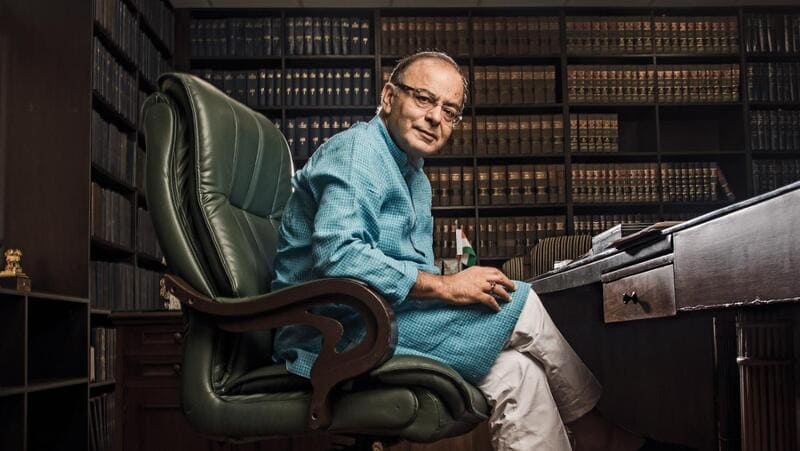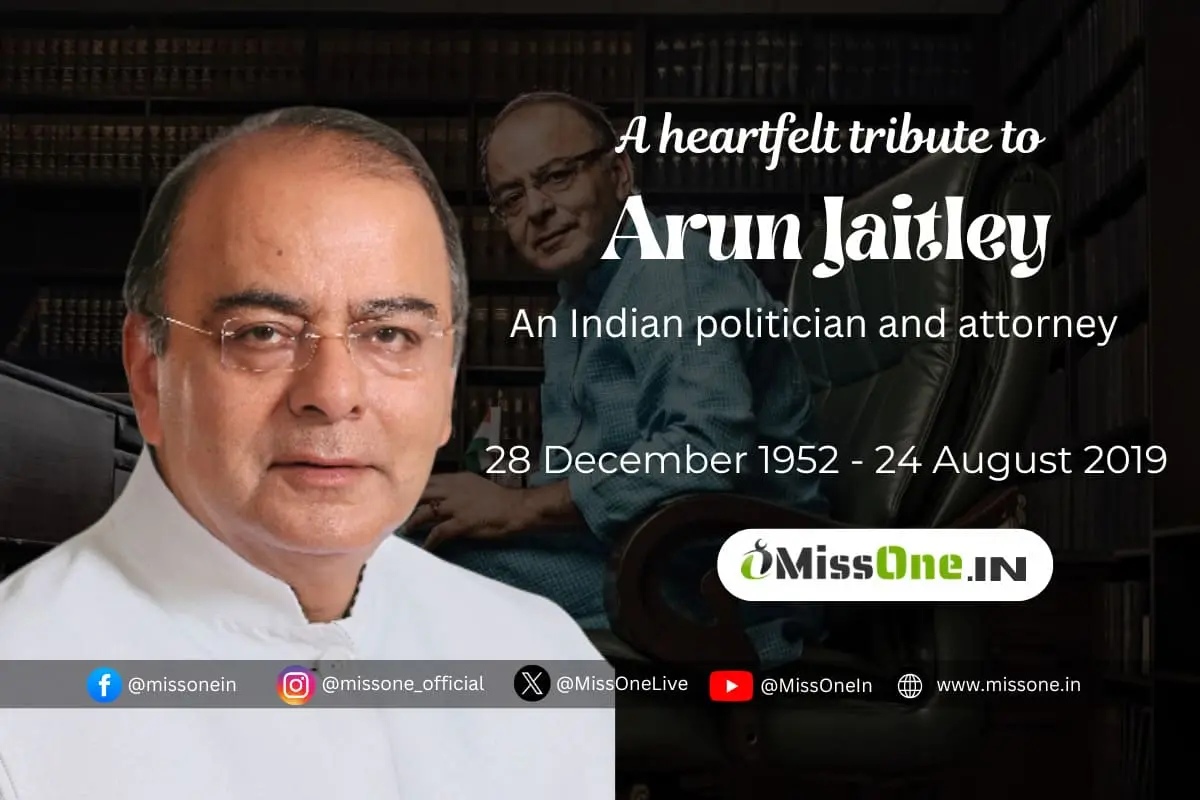In this heartfelt tribute to Arun Jaitley, we remember a leader whose dedication, intellect, and service to the nation left an indelible mark on Indian politics. A man of wisdom, vision, and values, Arun Jaitley played a pivotal role in shaping India’s economic policies and governance during a transformative period in the country’s history. From his early days as a student leader to his tenure as the Finance Minister of India, his journey was marked by unwavering commitment and excellence.
Early Life and Childhood of Arun Jaitley
Arun Jaitley was born on December 28, 1952, in New Delhi, into a respected Punjabi Hindu family. His father, Maharaj Kishen Jaitley, was a renowned lawyer, and his mother, Ratan Prabha Jaitley, was a dedicated homemaker. Growing up in an academically inclined household, Jaitley inherited a natural inclination toward education, debate, and public life.
He attended St. Xavier’s School in Delhi, where he excelled in academics and extracurricular activities. Even in his school days, he showed remarkable leadership skills and a deep interest in politics and law. These qualities set the stage for a remarkable journey that would see him rise to the top echelons of Indian governance.
Academic Excellence and Entry into Student Politics
After completing school, Arun Jaitley pursued his bachelor’s degree in commerce from Shri Ram College of Commerce (SRCC), one of India’s premier institutions. He then went on to study law at the Faculty of Law, University of Delhi. During his college years, he became an active member of the Akhil Bharatiya Vidyarthi Parishad (ABVP), the student wing of the Rashtriya Swayamsevak Sangh (RSS).
In 1974, Jaitley was elected as the president of the Delhi University Students’ Union (DUSU), marking his entry into active student politics. His term was noted for his strong leadership and ability to articulate the concerns of students. This phase laid the foundation for his political career.

The Emergency and a Defining Role
One of the most defining periods in Arun Jaitley’s life came during the Emergency imposed by Prime Minister Indira Gandhi in 1975. Jaitley, then a young law student, was among the most vocal critics of the suspension of democratic rights and civil liberties. He was arrested and spent 19 months in jail under the Maintenance of Internal Security Act (MISA).
This experience shaped his political ideology and deepened his commitment to democracy and justice. His courageous stand during the Emergency earned him respect across political circles and established him as a principled and fearless leader.
Professional Career and Rise in National Politics
After the Emergency, Arun Jaitley resumed his legal practice and became a senior advocate of the Supreme Court in 1990. His reputation as a brilliant legal mind grew rapidly. He represented various high-profile clients and participated in key legal battles, including matters of constitutional law and corporate affairs.
Jaitley’s transition from law to active politics occurred in the late 1990s. In 1999, he was appointed Minister of State for Information and Broadcasting and Disinvestment in the Atal Bihari Vajpayee government. His tenure saw major reforms in the media and privatization sectors. He was later elevated to the cabinet as Minister of Law, Justice, and Company Affairs.
A Pillar of the Bharatiya Janata Party (BJP)
Arun Jaitley quickly became one of the most influential leaders in the Bharatiya Janata Party. Known for his sharp intellect, clear communication, and legal acumen, he became a chief strategist and spokesperson for the party. He was instrumental in framing key legal and policy arguments during national debates and elections.
Even when he lost the 2014 Lok Sabha election from Amritsar, Prime Minister Narendra Modi appointed him as the Finance Minister and Minister of Corporate Affairs, recognizing his unparalleled expertise.
Tenure as Finance Minister: Reforms and Vision
Jaitley’s term as Finance Minister from 2014 to 2019 was one of the most transformative periods in India’s economic history. He was at the forefront of several landmark reforms:
- Goods and Services Tax (GST): One of India’s biggest tax reforms, GST aimed to create a unified national market. Despite challenges, Jaitley’s persistence ensured its successful implementation.
- Insolvency and Bankruptcy Code (IBC): This reform transformed India’s corporate sector by improving the process of resolving bad debts and boosting investor confidence.
- Banking Sector Reforms: He initiated the recapitalization of public sector banks and promoted digital banking.
- Fiscal Consolidation: Despite global economic uncertainty, he maintained fiscal discipline while increasing capital expenditure and infrastructure spending.
His economic vision combined pragmatism with social welfare, balancing growth with responsibility.

Personal Life and Family
Arun Jaitley married Sangeeta Jaitley in 1982. The couple had two children – a son, Rohan, who followed his father’s footsteps into law, and a daughter, Sonali. Despite his demanding public life, Jaitley was known to be a devoted husband and a loving father.
He valued his personal relationships deeply and maintained strong friendships across political lines. Known for his wit, humility, and kindness, he was respected and admired even by his opponents.
Health Struggles and Final Days
In the later years of his life, Jaitley faced several health issues, including diabetes and kidney complications. In 2019, he chose not to join the Modi Cabinet due to his health. Despite stepping away from active politics, he remained a guiding force for the party.
Arun Jaitley passed away on August 24, 2019, at the age of 66. His death marked the end of an era in Indian politics. Tributes poured in from all quarters, acknowledging his contribution to the nation.
Awards and Recognition
Although he was never one to chase awards, Arun Jaitley’s work received widespread recognition:
- Outstanding Parliamentarian Award (2010): Acknowledging his excellence in parliamentary debate.
- Posthumous Honors: Numerous institutions and leaders have honored his memory through scholarships, foundations, and memorial lectures.
His legacy continues to inspire young politicians, economists, and lawyers alike.
Legacy and Enduring Influence
Arun Jaitley’s legacy goes beyond his titles and positions. He was a bridge between the old and the new India—a modern reformer who deeply respected democratic traditions. His understanding of law, economy, and politics made him one of the most respected voices in Indian public life.
This tribute to Arun Jaitley is not just about remembering the positions he held, but the values he embodied—integrity, intellect, patriotism, and service. His speeches, decisions, and vision continue to shape the discourse on governance and development in India.
Conclusion: A Leader We Will Always Remember
As we conclude this heartfelt tribute to Arun Jaitley, we remember a man who lived not just for personal glory, but for the nation. His calm demeanor, sharp intellect, and unwavering patriotism made him a role model for generations to come. Whether in the courtroom, Parliament, or behind the scenes crafting policy, Arun Jaitley served with distinction and honor.
India lost a true gem in Arun Jaitley, but his ideals, reforms, and legacy will live on, inspiring future leaders to dream big and serve selflessly.

